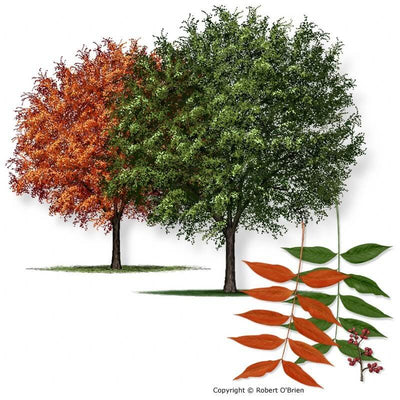Raspberry Southland
Raspberry Southland
Description: The Raspberry 'Southland' is a deciduous shrub belonging to the Rubus genus. It produces large, sweet, and flavorful berries that are typically dark red to burgundy in color when fully ripe. The fruit has a rich raspberry flavor with a balanced level of sweetness and acidity, making it ideal for fresh eating, baking, preserves, and desserts. 'Southland' raspberries are typically known for their firm texture and juicy consistency.
Size: 'Southland' raspberries are characterized by their vigorous growth habit and can form dense, spreading thickets if left unmanaged. Individual canes can reach heights of 4 to 6 feet (1.2 to 1.8 meters) or more, with a similar spread. The size of the plant may vary depending on factors such as soil fertility, climate, and pruning practices. Proper pruning is important for maintaining the shape and size of the plant, as well as promoting fruit production.
Growing Zones: The Raspberry 'Southland' is hardy in USDA plant hardiness zones 4 through 9. These zones encompass a wide range of temperate climates, including regions with cold winters and hot summers. 'Southland' raspberries perform best in regions with well-drained soil and full sun exposure. They are particularly well-suited to regions with long, cool growing seasons and ample moisture.
Soil and Sun Requirements: 'Southland' raspberries prefer well-drained, loamy soil with good fertility and a pH level between 5.5 and 6.5. They also require full sun exposure to ensure optimal growth and fruit production. Adequate air circulation around the plants is important for minimizing the risk of fungal diseases such as powdery mildew and botrytis.
Pruning and Maintenance: Proper pruning is essential for maintaining the health, shape, and productivity of 'Southland' raspberry plants. Pruning should be done in late winter or early spring while the plants are still dormant. This helps remove old, diseased, or damaged canes and encourages the growth of new, fruit-bearing canes. Regular irrigation, especially during dry periods and when fruit is developing, is also important for optimal plant health and fruit quality.
Pest and Disease Resistance: 'Southland' raspberries are relatively resistant to pests and diseases, though they may be susceptible to issues such as aphids, spider mites, and fungal diseases. Regular monitoring and appropriate pest and disease management practices can help mitigate these issues. Additionally, selecting disease-resistant cultivars such as 'Southland' can help minimize the risk of problems.

